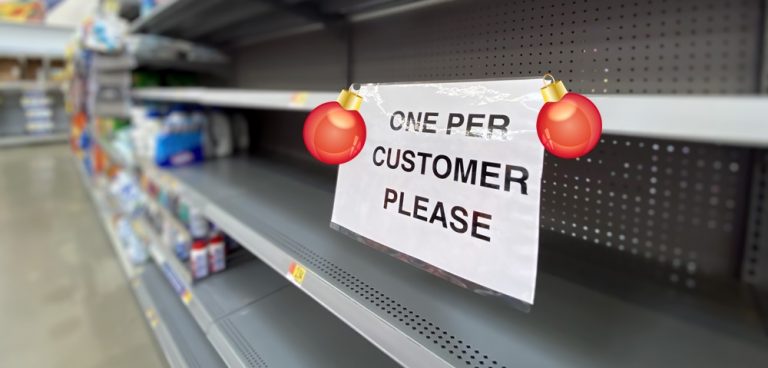Headlines about Christmas shortages will be stressing shoppers and businesses – and could be particularly ruinous for smaller businesses which often make their biggest sales over the Christmas period.
But is there anything small businesses can do now to ensure that their supply chains are match fit? These 12 tips of Christmas should help SMEs worried about supply issues over the Christmas period.
- For suppliers wishing to know where liability may rest, and retailers wanting to understand their legal rights, the first port of call is to consider the terms of the contract. If you’ve been relying on standard T&Cs and purchase order conditions, now is the time to get those contracts out and check they are fit for purpose.
- Suppliers may ask for additional time to comply with the contractual obligations. Customers may request additional time to pay or other contract variations. In each case you should consider how to protect your interests, such as a form of security or personal guarantee.
- If you’re a customer worrying about your supplier’s ability to fulfil your orders, try to identify alternative sources of supply or substitutable products at an early stage.
- Even exclusive contracts may give customers the right to seek alternative suppliers if the supplier is unable to comply with its obligations. Use these rights to establish a network of suppliers rather than relying on one.
- Retention of title clauses can enable a supplier to repossess goods which have not been paid. This provides potential protection where a customer goes into liquidation or administration.
- The contract may include mechanisms allowing for price adjustments. With supply chains, aspects can be out of your control and so it is important for clauses to be cross-checked relating to the supply and your onward sale contracts.
- Ensure that you don’t give promises or guarantees to your customers without obtaining reciprocal promises and guarantees from suppliers. This will avoiding you being stuck in the middle facing breach of contract claims from customers which you cannot pass through to your supplier.
- Consider what the contract says about orders and cancellation. Products can have a long lead time and the impact of cancellation close to delivery can be devastating. Customers may insist on a right to cancellation, and suppliers can reduce their exposure by insisting on a non-refundable deposit placed at the time of order or on staged payments at the time of delivery, leaving a more manageable amount of the price outstanding after delivery.
- Consider any “force majeure” provisions. These are intended to protect either party from being in contractual breach in circumstances outside their reasonable control. The scope and requirements of force majeure varies from contract to contract. If you find yourself facing a force majeure defence by your supplier and, as a result, cannot supply your own customers, you need to assess the risk allocation under each contract separately to develop a risk management strategy. It is also important to note that force majeure is unlikely to provide an exit route out of a contract that is more difficult or expensive to perform, or loss-making due to, for example, Brexit or Covid.
- You may wish to renegotiate, vary or exit the contract immediately if it becomes too difficult or unprofitable to merit continuing. Care should always be taken before terminating a contract, as there may be significant legal risks associated.
- Supply chains need to adapt to current market conditions. Developing a supply risk management plan will help identify these risks and protect against potential failure in your supply chain.
- Be positive. Panic buying can exacerbate the problem. Try to avoid creating unnecessary hysteria. If you can foresee shortages with certain product lines, show your customers and consumers the great alternatives which you are able to offer.
Authors: Kathryn Rogers, Partner and Patricia Harriman, Trainee, at Cripps Pemberton Greenish

